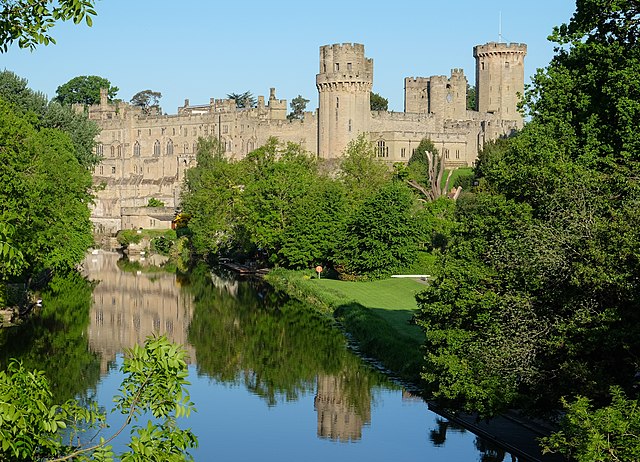Books Without Borders: Warwickshire writers
Students across the country have been all too busy packing away all matter of necessities into boxes, trunks, and suitcases. Those coming to Warwick also will have packed, into their heads, thoughts of Shakespeare and castles. It’s sort of what most of the Midlands represents to us outsiders, stereotypically.
Suppose you were to mention to a relative or family friend that you intend to study at the University of Warwick. In that case, they might pass this proclamation with a proud grin, uttering words along the lines of good luck in the ‘land of Shakespeare’. Despite this quite reductionist scope, the Midlands offers us a vast array of many great writers. So, it might be advised for you to scout out some mentioned here before you take your first steps onto our campus.
Shakespeare is, of course, one we must mention. The area is significant for him as he resided in Stratford-upon-Avon, exactly 16.1 miles from the University of Warwick, or 23 minutes down the road. Shakespeare lived in the town during a terrible plague that had brushed coats of destruction across much of England. Luckily for us, Shakespeare lived on, though his son, Hamnet, died of the plague in 1592. This led Shakespeare to title his most beloved and lengthiest piece, Hamlet, in a time where the name was almost as interchangeable as Tom and Thomas are in our time.
There must be something about this place that absorbs the good and the bad in the world, and it is all wrung out like a wet cloth onto the pages of Shakespeare’s works.
Shakespeare has given us some of the greatest tastes of human emotion and the complexity of relationships, with love, jealousy, and death taking centre-stage. The universality of such themes is a key reason for his longevity – characters such as Iago, Othello, Desdemona, Macbeth, and Lady Macbeth are famed for these exact reasons. Jealousy, cunningness, guilt, and ambition are all focal points of Shakespearean tragedies. There must be something about this place that absorbs the good and the bad in the world, and it is all wrung out like a wet cloth onto the pages of Shakespeare’s works.
Moving closer to the University, the Victorian Coventry landscape is believed to have inspired the imagery in George Eliot’s celebrated book, Middlemarch. Eliot, in fact, grew up in Coventry for a while and attended a school here until she was 15. Her books are known and praised for their excellent humour and tragedy but dealing primarily with relationships and social commentary. Middlemarch, being her masterpiece, is considered one of the most accomplished British novels.
After Shakespeare and Eliot provide your dose of tragedy, social relationships, and comments on religion, Wyndham’s commentary gives itself an excellent basis in politics and philosophy.
Special mention also goes to John Wyndham, born in the small village of Dorridge. Wyndham is often a forgotten mind of the highly saturated science fiction genre, but one that wholeheartedly doesn’t deserve this status. He’s a novelist who can take you away to another world quite convincingly, typically surrounding the reader with plights in overpopulation, the impacts of nuclear war, and apocalypse. After Shakespeare and Eliot provide your dose of tragedy, social relationships, and comments on religion, Wyndham’s commentary gives itself an excellent basis in politics and philosophy. He also famously captures and analyses the anxiety of the Cold War materialising and formulating itself in much of his work.
This region, so steeped in beauty and history, is one that is waiting to be explored by all the new students heading to our University for the first time. The sites are still out there dying for you to see or read about from the pages of books, wherever or whichever stories you fancy.

Comments